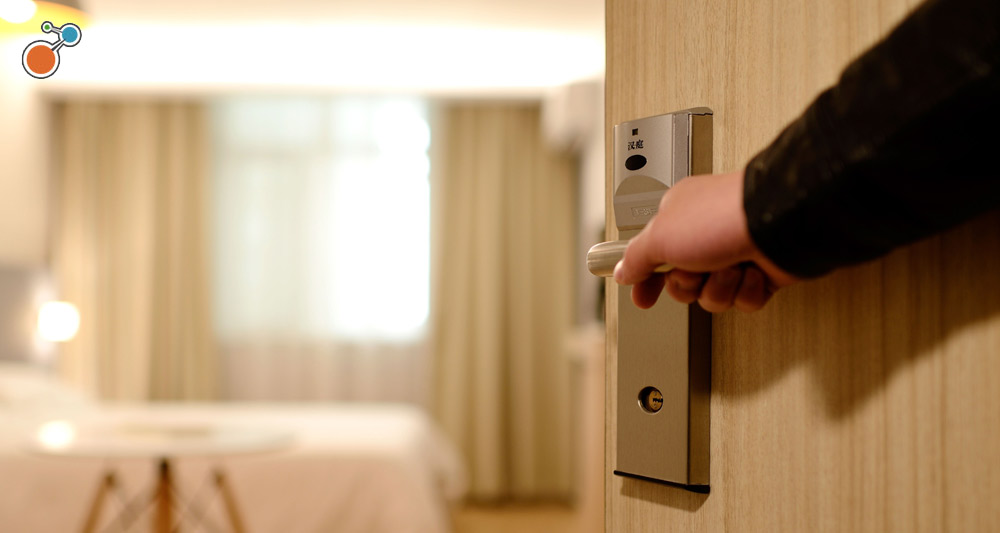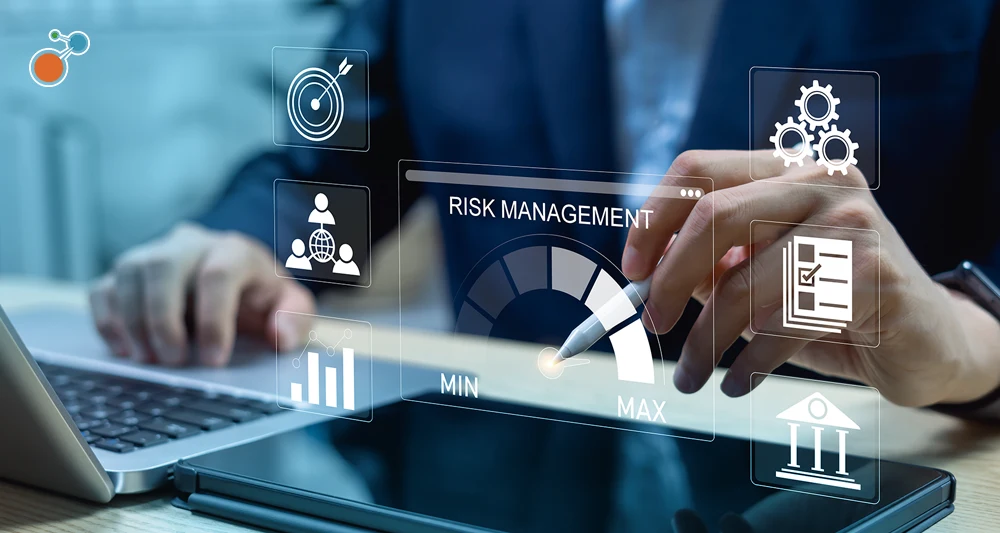Technology has become increasingly important to the hospitality and FOOD INDUSTRIES. For example, ONE OF EVERY FOUR HOTELS has sought to improve guest experiences by adopting new tech tools and features.
Specifically, properties and hospitality brands look to software, AUTOMATION, and other digital advancements to define and mitigate risks and streamline operations. These advancements can lessen the risk of loss, increase efficiency, and bring about operational improvements to improve profit margins.
In addition, tech has transformed how the hospitality industry handles risk management. From collecting data in the field after an incident to using AI to forecast risks that have not yet materialized, the software is essential to risk management for today’s hotels.
Here is a look at how tech innovations help the hospitality industry respond to and mitigate risks that can affect reputation, profits, and guest satisfaction.
Predictive Maintenance
Predictive maintenance can be important for guest safety. PREDICTIVE MAINTENANCE involves monitoring systems and appliances using sensors. The goal of this digital surveillance is to notice the need for repairs or maintenance before a breakdown.
For instance, sensors can detect repair needs for elevators, fire suppression systems, and other protective elements. Embedded hardware can also assess the efficiency of appliances and signal the need for maintenance that could reduce energy costs. In a hotel with dozens or hundreds of units, these small fixes could add up to significant cost savings and risk reduction.
Reactive maintenance, on the other hand, involves fixing things after a breakdown, which requires more parts and labor than preventive maintenance informed by sensors and AI systems measuring performance.
Big Data Protection
Hospitality relies heavily on data to personalize guest experiences, streamline reservations and payments via websites and mobile apps, and target advertising. However, the use of personal information exposes businesses to cybersecurity risks.
In 2019, the hospitality sector saw MORE DATA BREACHES THAN ANY OTHER INDUSTRY, except retail and finance. In addition to TRAINING EMPLOYEES to avoid phishing scams and protect login credentials, hotels can use cybersecurity systems to monitor activity on their networks and in databases.
For example, a NETWORK SECURITY MONITORING (NSM) system can collect and analyze data from network activity and detect usage details or traffic flows that do not fit within regular patterns. The system can then alert cybersecurity team members and automatically shut down the portion of the network where the anomaly occurred.
Smart Inventory Management
SMART INVENTORY MANAGEMENT SYSTEMS can help hospitality businesses reduce waste, limit storage requirements, and account for supply chain risks. With a well-connected system using sales and service data, companies can track inventory without having to manually count items. In food service, inventory software can even track expiration dates and refrigeration conditions to ensure ingredients remain safe for use, limiting potential liability.
Inventory software can also track the usage of materials and products, send alerts when supplies are low, and even automatically order commonly-used items or ingredients when the count reaches a defined threshold. In addition to limiting the need for storage space, this type of on-demand ordering can also help limit waste and overhead costs.
AI for Risk Mitigation
RISK MITIGATION TOOLS RELY ON ARTIFICIAL INTELLIGENCE to help hospitality companies identify risks, assess their possible impact on operations, and limit or eliminate them before they become major problems.
RISK-RELATED TECH TOOLS rely on predictive analysis and mathematical modeling to help define potential risks and map out scenarios for dealing with them. Other risk management software systems monitor vulnerable processes within a business to provide early warning when problems arise.
AI can crunch vast amounts of data instantly, making it possible to carry out constant assessments in real-time. With data for risks and regular process patterns, it can detect small anomalies that would escape the notice of a human analyst.
Cybersecurity monitoring is an obvious example for the hospitality industry. AI SOFTWARE CAN DETECT ANOMALIES in payment processing or find flaws in Wi-Fi security that hackers could exploit.
AI can also assess INTERACTIONS WITH GUESTS via messaging, voice, or chatbot and find patterns related to the types of requests or issues that commonly arise, alerting the hotel to issues affecting the guest experience.
Remote Monitoring
REMOTE MONITORING SYSTEMS POWERED BY AI can reduce human error and eliminate the need for labor-intensive CCTV monitoring. Software can analyze video feeds and use facial recognition, motion detection, and other tools to identify potential security risks.
Since these tools can monitor all feeds simultaneously. Not only does this eliminate the need for human monitoring, but it allows for immediate alerts and limits the chance of a security issue escaping detection.
Hotels can also use automated check-in kiosks, which can scan IDs and credit cards and use other information to verify the identity of the guest.
Smart Guest Services
Guests are more LIKELY TO RETURN TO HOTELS THAT MEET THEIR TECH NEEDS. Today’s guest tech expectations include contactless check-in via kiosk or mobile app, a virtual concierge, immediate customer service from a chatbot or messaging system, and the ability to connect devices to in-room entertainment systems.
These smart guest services can win a hotel’s repeat customers, and they can also automate personalization and data collection. For example, guests can order room service or purchase event tickets from a virtual concierge without having to call the front desk or walk down to the lobby.
Also, all digital activity gets logged in a database. The hotel can plug it into a CRM system and use it to offer personalized services to customers later in their stay or on subsequent visits.
Energy Efficiency
Hotel energy costs are typically BETWEEN 4% AND 6% OF REVENUE, so energy efficiency can play a major role in increasing profits. In addition to LED bulbs, solar panels, and Energy Star climate control systems, hotels can rely on embedded systems to improve efficiency.
For example, sensors can tell which rooms are occupied and turn off unnecessary lights and climate controls to conserve energy.
Risk Management Solutions
Risk management information systems (RMIS) can monitor all the risks associated with operating a hospitality business in one place. The goal of this type of tech is to limit the total cost of risk by defining and predicting dangers, receiving early warnings about potential problems, and streamlining the response process. In dollars and cents, the aim of tools like RMIS is to reduce the TOTAL COST OF RISK (TCoR).
Tech can also help make the post-incident response more efficient. For example, claims management software puts all necessary data from an incident in one place, providing the insights necessary to manage claims and handle litigation.
A related set of software systems can help manage insurance policy information. It is essential for businesses like hotels to integrate their insurance with risk management plans to account for dangers that they cannot eliminate or reduce.
These dangers might include unpredictable events, such as natural disasters, injuries that guests cause due to their own negligence, or errors committed by staff that lead to injury or property damage. Disaster and liability insurance may help limit the financial risks associated with these uncontrollable events.
Finally, enterprise risk management (ERM) software brings together all risk insights and controls onto one centralized platform where decision-makers can monitor performance, create strategies, and automate monitoring and responses.




